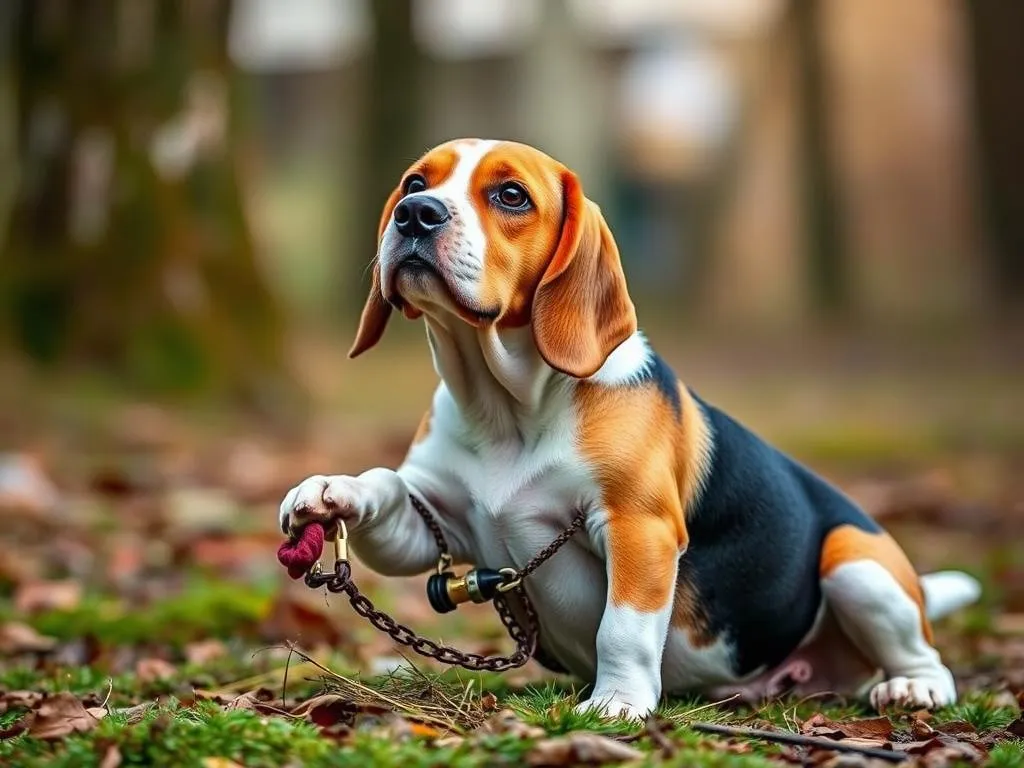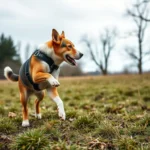
Beagles are renowned for their keen sense of smell and strong hunting instincts. Originating from a lineage of hunting dogs, these charming companions have been utilized for centuries to track game, making them exceptional candidates for hunting enthusiasts. When it comes to how to train a beagle to hunt, a well-structured training regimen is crucial for harnessing their natural abilities and ensuring their effectiveness in the field.
Understanding the Beagle Breed
History of Beagles
Beagles have a rich history that dates back to ancient Greece and Rome, where they were primarily bred for hunting small game like rabbits and hares. Their lineage can be traced through various breeds, such as the Harrier and the English Foxhound, which were crossed to create the modern beagle. Over time, beagles have evolved into versatile hunting dogs, known for their agility and endurance in the field.
Characteristics of Beagles
Beagles typically stand between 13 to 16 inches tall and weigh between 20 to 30 pounds. They possess a short, dense coat that comes in several color combinations, including tri-color and lemon. Their physical traits include large, floppy ears and expressive eyes that reflect their friendly disposition.
Temperamentally, beagles are known for their playful and curious nature. They are friendly with people and other dogs, but their independent streak can sometimes pose challenges during training. Understanding these characteristics is essential for effective training.
Hunting Instincts
Beagles have an innate ability to track scents, making them natural hunters. Their hunting instincts manifest in behaviors like scent tracking and chasing. By tapping into these instincts during training, you can teach your beagle to become an effective hunting companion.
Preparing for Training
Essential Training Supplies
Before embarking on your hunting training journey, it’s essential to gather the right supplies:
- Collars and Leashes: Opt for a sturdy collar that fits comfortably. A long training leash can also be beneficial for outdoor practice.
- Training Treats and Toys: Use small, high-value treats to motivate your beagle during training sessions. Toys that mimic hunting scenarios can also be effective.
- Hunting Gear: Depending on the type of hunting you plan to do, consider investing in gear such as vests and safety gear for your beagle.
Establishing a Training Environment
Choose a quiet, spacious area for training where your beagle can focus without distractions. This could be your backyard or a secluded park. As your beagle masters commands, gradually introduce distractions to simulate real hunting scenarios.
Understanding Your Dog’s Personality
Every beagle is unique, and understanding your dog’s personality is vital for successful training. Spend time observing how your beagle reacts to different situations. By assessing their temperament and learning style, you can tailor your training methods accordingly, which will enhance their learning experience.
Basic Training Commands
Teaching Basic Commands
Before diving into hunting-specific skills, it’s essential to establish a foundation of basic commands. Start with:
- Sit: Hold a treat above your beagle’s nose and move it back over their head. As they sit to follow the treat, say “sit” and reward them.
- Stay: With your beagle in a sitting position, hold your hand up like a stop sign and say “stay.” Gradually increase the distance before rewarding them.
- Come: Use a long leash, call your beagle’s name, and say “come.” When they approach, reward with treats and praise.
- Heel: Start walking with your beagle on a leash, encouraging them to stay close to your side. Use treats to reinforce the behavior.
Importance of Consistency and Repetition
Consistency is key in training. Set a regular schedule for training sessions, ideally 10-15 minutes a day, to reinforce commands. Repetition helps solidify the commands in your beagle’s mind.
Utilizing Positive Reinforcement
Positive reinforcement is an effective training technique that encourages desired behaviors through rewards. Use treats, praise, and playtime to motivate your beagle. For example, when they successfully follow a command, reward them immediately to create a positive association.
Introducing Hunting Skills
Scent Training
Scent training is crucial for teaching your beagle how to track and find game. Begin by introducing them to various scents using scent trails, such as:
- Scent Trails: Create a trail using a piece of cloth soaked in a specific scent. Lay the trail in a straight line and encourage your beagle to follow it to the end.
- Scent Objects: Hide scent-specific objects, like a toy or a piece of clothing, and encourage your beagle to locate them using their nose.
Tracking and Trail Following
Once your beagle is comfortable with basic scent training, you can teach them to track scents in more challenging settings. Start by laying a longer, more complex scent trail. Gradually incorporate real hunting scenarios, such as using the scent of small game.
Retrieving Skills
Teaching your beagle to retrieve game is another essential skill. Use toys that resemble the game you intend to hunt. Start by tossing the toy a short distance and encouraging your beagle to fetch it. Reward them upon bringing it back. This reinforces their desire to retrieve and builds obedience.
Advanced Hunting Training Techniques
Field Work and Socialization
As your beagle becomes more proficient in their skills, it’s time to introduce them to fieldwork. Socialization with other hunting dogs is beneficial for your beagle to learn from their behaviors and develop teamwork skills. Arrange playdates or group training sessions in the field.
Using a Dummy or Simulation Game
Incorporating dummies in training can simulate real hunting scenarios without the pressure of live game. Use dummies that mimic the size and shape of the game you will hunt. Toss the dummy and encourage your beagle to retrieve it, reinforcing the behavior with treats and praise.
Joining Hunting Clubs or Classes
Professional training can offer significant benefits. Joining local hunting clubs or classes allows you to learn from experienced trainers and gain access to valuable resources. This environment also provides opportunities for your beagle to socialize and practice their skills with other dogs.
Common Challenges and Solutions
Dealing with Distractions
Beagles can be easily distracted, especially in a hunting environment. To combat this, gradually introduce distractions during training sessions. Start with minimal distractions and increase them as your beagle becomes more focused. Consistent practice will help them learn to ignore distractions.
Addressing Behavioral Issues
Common behavioral problems in beagles include excessive barking, digging, and wandering off. If you notice these behaviors, identify the triggers and address them with modified training approaches. For instance, if your beagle barks excessively, redirect their attention with commands or toys.
Ensuring Safety During Training
Safety is paramount during hunting training. Ensure your beagle is fitted with a proper collar and ID tags when practicing in the field. Be cautious of wildlife and other potential hazards. Training in controlled environments helps minimize risks while allowing your beagle to learn.
Maintaining Skills and Continuing Education
Regular Practice and Reinforcement
Ongoing practice is vital to maintain your beagle’s hunting skills. Set aside regular practice sessions to reinforce what they’ve learned. Keeping training sessions fun and engaging will motivate your beagle to excel.
Keeping Up with New Training Techniques
Dog training is an evolving field, and staying updated with new methods can enhance your training experience. Consider exploring books, online courses, or local seminars that focus on hunting dogs and training techniques.
Building a Bond with Your Beagle
Training is not just about teaching commands; it’s also an opportunity to strengthen your bond with your beagle. Engage in activities that foster trust and teamwork, such as hiking, playing games, or simply spending quality time together. A strong bond will enhance your training efforts and make hunting more enjoyable.
Conclusion
Training a beagle for hunting is a rewarding journey that requires patience, consistency, and understanding. By leveraging their natural instincts, establishing a solid training foundation, and incorporating advanced techniques, you can transform your beagle into a skilled hunting companion. Remember to celebrate your progress and enjoy the experience together, as the bond you create is as valuable as the hunting skills you develop.









